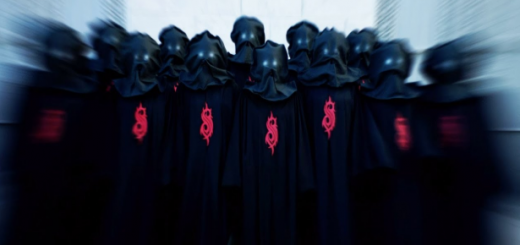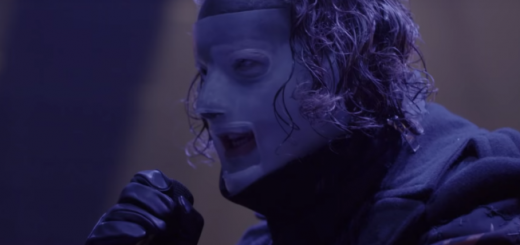Eeyore by Slipknot Lyrics Meaning – Unraveling the Chaos Behind the Mask
Lyrics
Greet the can that I came from
Oh the fucking sacred heart of Jesus
Blew it in the back room
Feelin’ like a real goon
Slam the fuck aside, man
I’m on, you’re not
I am the great big mouth
Good riddance, though I’m sad to say
I didn’t get to kill you
Rhetoric, better look both ways
I gotta get an arm through
Stain
What the fuck is up? get the fuck away
Run if you want to
Innocent? you’re a guilty conscience
Laugh last, break through
Stain
Prepare you fucker
I don’t give a shit, bitch
I don’t give a fuck, bitch
I don’t understand, bitch
You don’t matter
I don’t give a shit, man
I don’t give a fuck, man
I don’t really care, man
I’m the super sized man
There’s an enigmatic allure that emanates from the guttural growls and rapid-fire percussion of Slipknot’s ‘Eeyore.’ The track, a chaotic blend of nu-metal ferocity and raw, unfiltered emotion, serves as an exploration into the band’s darker recesses, inviting us to dissect the lyrical labyrinth set forth by frontman Corey Taylor.
Often overshadowed by the band’s more commercial hits, ‘Eeyore’ is a stark, unapologetic piece that delves into themes of animosity, self-realization, and the human condition. Even two decades after its release, listeners find themselves entangled in its aggressive narrative. But what lies beneath the surface-level vitriol?
The Savage Siren Call of ‘Eeyore’
From the very first line, ‘Meet the man that made me,’ there’s an initiation into confrontation – a notion that someone or something has had a profound effect on the narrator’s identity. The song immediately sets a tone of self-aware resentment; it’s as if we’re being introduced to a personal demon, a contributing factor to the narrator’s destructive nature.
The melee continues with ‘Greet the can that I came from,’ a possible reference to the band’s humble beginnings and the suffocating environment that they’ve transcended. The ‘back room’ brings a hidden, darker side of upbringing and existence to light, suggesting that much of the narrator’s aggression is the product of past experiences – likely ones involving betrayal or suppression.
Misanthropic Musings and Masked Metaphors
If Slipknot has taught us anything, it’s that their lyrics often serve as a veil for deeper meanings. ‘Eeyore’s’ unabashed chorus ‘I am the great big mouth’ might suggest a struggle with expression or the repercussions of speaking out in a censorious society. Here, self-proclamation is both a battle cry and a burden – a dichotomous sentiment that echoes throughout the raucous cacophony.
The line ‘Good riddance, though I’m sad to say I didn’t get to kill you’ is not so much a literal death wish as it is the symbolic death of control over the narrator. Taylor’s iconic growl delivers equal parts fury and mourning, demonstrating the complexity of human emotion, even (or especially) when it’s shrouded in the macabre.
Dissecting the Dichotomy of Innocence and Guilt
‘Innocent? You’re a guilty conscience’ flips the script on assumed purity, confronting the hypocrisy that can lie within self-righteousness. It’s a lyrical knife fight that challenges listener complacency, forcing the acknowledgment of internal conflicts and the duality of actions. Slipknot has always had a knack for exposing uncomfortable truths, and ‘Eeyore’ skews no different.
And amidst those truths lies the relentless pursuit to ‘break through,’ indicative of striving for realization beyond the constraints of guilt and judgment. The message is raw and unyielding, encapsulated in music that propels it with relentless force, demanding that the listener confront their own stains upon the fabric of their character.
Decoding the Hidden Meaning Behind the Rage
Behind ‘Eeyore’s’ intense delivery and aggressive instrumentation lies an existential cry – a cry that is echoed through the line ‘I don’t understand, bitch/You don’t matter.’ This is reflective of the human need for purpose and the angst of feeling insignificant in a world that often casts individual struggles aside.
It’s this introspective angst that fuels Slipknot’s collective engine. ‘Eeyore’ isn’t just about external animosity; it’s a mirror reflecting the intrinsic battles we fight within. Stripped of its sonic trappings, the song becomes a psychological narrative of struggle for identity and meaning in a seemingly indifferent universe.
The Enduring Resonance of ‘Eeyore’s’ Anthemic Aggression
Wrapping up the tumult is the repeated embrace of apathy: ‘I don’t give a shit, man/I don’t give a fuck, man/I don’t really care, man.’ But the insistence with which these lines are delivered betrays a deeper involvement, a concern that’s being masked by the pretense of indifference. In typical Slipknot fashion, what’s said is just as important as what’s left unsaid.
‘Eeyore,’ much like its A. A. Milne namesake – the gloomy, pessimistic donkey from Winnie-the-Pooh – reflects a sentiment of underspoken sorrow shadowed by a hardened exterior. It is through this portrayal that Slipknot remains relevant, tapping into the zeitgeist of disenfranchised youth and the perpetually misunderstood. This song, while brutal on the surface, is a siren song for the disenchanted, and therein lies its enduring grip on audiences worldwide.








